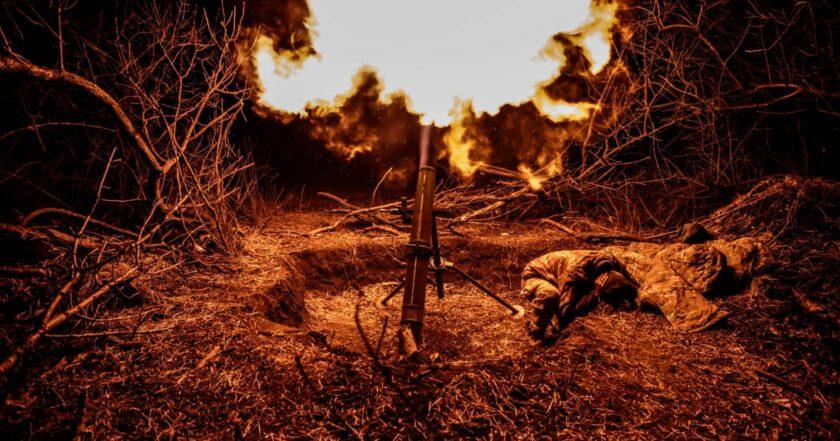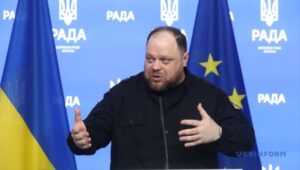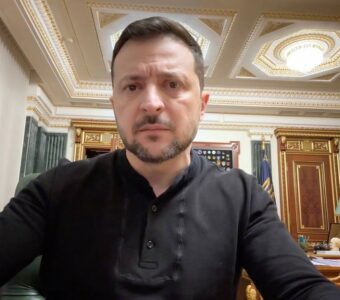Russia has captured 505 sq. km of Ukrainian territory since October 2023 – ISW

Photo: Facebook / General Staff of Ukraine's armed forces
The Russian army has captured 505 square kilometers of Ukrainian territory since the beginning of the offensive operations in October 2023, according to the Institute for the Study of War (ISW).
From January 1 to March 28 of this year, Russian forces have seized nearly 100 square kilometers more than in the last three months of 2023, Rubryka reports.
Military analysts suggest that such rapid advancement may be due to a combination of Ukrainian weapon shortages and more favorable winter weather conditions compared to autumn.
ISW noted that this slight increase in the pace of Russian advancement does not necessarily indicate a threat of Russian operations succeeding.
However, the shortage of materiel limits the ability of Ukrainian forces to conduct effective defensive operations while providing Russian forces with flexibility in conducting offensive operations, which could complicate and present nonlinear possibilities for Russian forces to achieve significant operational successes in the future.
Key ISW conclusions as of March 28
Ukraine currently prevents Russian forces from achieving significant tactical successes along the entire front line, but further delays in providing security assistance from the United States are likely to increase the threat of Russian operational success.
Further degradation of the Ukrainian air defense is one of the most direct ways Russian forces can exert nonlinear operational influences.
Russia's ability to conduct opportunistic but limited offensive actions along the Ukrainian-Russian international border provides additional opportunities to limit Ukrainian personnel and equipment, but Western assistance and Ukrainian efforts to address personnel issues weaken the impact of such Russian efforts.
Russian President Vladimir Putin continues to make sensational statements as part of a reflexive control campaign aimed at restraining further Western military assistance to Ukraine and diverting attention from the buildup of Russian forces opposing NATO.
Putin's statements from March 27 are not new and best illustrate how the Kremlin regularly floods the Western information space with often outdated or out-of-context truths rather than outright disinformation or misinformation to shape global perceptions and advance its own long-term goals.
The Russian Investigative Committee unexpectedly claimed evidence of Ukrainian involvement in the March 22 "Crocus City Hall" terrorist attack against the backdrop of the Kremlin's ongoing efforts to link Ukraine and the West to this attack to garner greater domestic support for the war in Ukraine.
Russian President Vladimir Putin has expressed concern about the growing ethnic tension in Russian society following the "Crocus City Hall" terrorist attack. He also possibly baselessly accuses Ukraine and the West of attacking "Crocus City Hall" to divert internal attention from ethnic tension.
Ukrainian drone strikes targeting oil refineries force Russia to import gasoline from Belarus.
Independent investigations have found that international information campaigns related to the late financier of the Wagner PMC, Yevgeny Prigozhin, remain active despite the Russian government's closure of media companies and organizations openly linked to Prigozhin after his death.
Russian high-ranking officials increasingly accuse the Armenian leadership of continuing to distance itself from relations with Russia in the security sphere after the Kremlin abandoned Armenia indiscriminately when it lost Nagorno-Karabakh.
Russian troops have made confirmed advances near Donetsk.
Russia continues attempts to acquire ballistic missiles and other weapons from North Korea for use in Ukraine.
President Volodymyr Zelensky reported that the Ukrainian forces have managed to stabilize the situation on the front lines, but the Russian army is likely preparing for a new offensive, which could be expected in May-June.
According to British intelligence, the likely next target of Russian-occupational forces in the Donetsk region will be Chasiv Yar in the Bahmut direction, as it is currently located approximately 5 km from the front line.
ISW also believes that further delays in providing Western security assistance will likely postpone Ukrainian efforts to regain the initiative across the entire theater of operations. This could be compounded by Russia's planned new offensive operation in spring or summer of this year.






















































